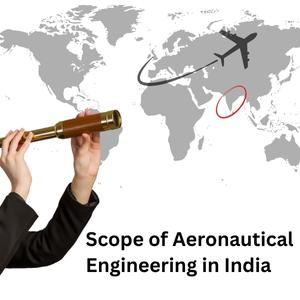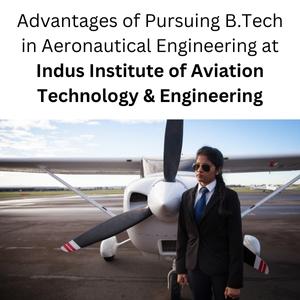Announcement
Get Ready for INDUS CUP 2K26! | Dates: 5–10 January 2026 | Stand a Chance to Win Cash Prizes up to ₹10,00,000!...Read more Get Ready for INDUS CUP 2K26! | Dates: 5–10 January 2026 | Stand a Chance to Win Cash Prizes up to ₹10,00,000!
We are excited to announce the Indus Hackathon 2025, an exhilarating one-day event organized by the CSE Department of Indus University....Read more We are excited to announce the Indus Hackathon 2025, an exhilarating one-day event organized by the CSE Department of Indus University.
26th ISTE Faculty Annual State Convention will be held at Indus University on April 27, 2023....Read more 26th ISTE Faculty Annual State Convention will be held at Indus University on April 27, 2023.
Get Ready for INDUS CUP 2K26! | Dates: 5–10 January 2026 | Stand a Chance to Win Cash Prizes up to ₹10,00,000!...Read more Get Ready for INDUS CUP 2K26! | Dates: 5–10 January 2026 | Stand a Chance to Win Cash Prizes up to ₹10,00,000!
We are excited to announce the Indus Hackathon 2025, an exhilarating one-day event organized by the CSE Department of Indus University....Read more We are excited to announce the Indus Hackathon 2025, an exhilarating one-day event organized by the CSE Department of Indus University.
26th ISTE Faculty Annual State Convention will be held at Indus University on April 27, 2023....Read more 26th ISTE Faculty Annual State Convention will be held at Indus University on April 27, 2023.

Aviation engineers must be exacting and adept problem solvers. They should have excellent design skills, be proficient with computers, and have good communication skills. They must have excellent planning skills and be skilled at working under pressure. Aeronautical engineers may frequently need to work relatively quickly, particularly when assessing and maintaining aircraft during turnarounds. Thus, prospective candidates should be physically fit.
B.Tech in aeronautical engineering is one of the exciting career paths available in India. Together with exciting job opportunities at top corporations, this institute also offers the once-in-a-lifetime experience of becoming a pilot and experiencing space. Most of these recently graduated aeronautical engineers are employed by ISRO.
Many job opportunities exist in the fields of aeronautic, including those in research, design, and positions directly related to the operation and maintenance of aircraft. Regardless of the fact that there are many aeronautical employment openings, there need to be more aeronautical engineers in the country right now. So, opting to pursue aeronautical engineering helps the nation's aerospace and aviation industries develop. Because aeronautical engineering is a challenging and important field that requires a high level of commitment, diligence, and dedication from the professional, the most reputable and significant companies in the sector provide aeronautical engineers with generous compensation packages. Indian salaries start at INR 500000 and increase with experience to INR 10,00,000 to INR 12,00,000.


In industrialised aircraft divisions, aircraft ventures, and air turbine production plants or designs, aeronautics designers are in extremely high demand. Also, they might look for work in a variety of fields like design, development, and maintenance, as well as in managerial and teaching positions in institutions. Although this profession is relatively well compensated, it is also very demanding. Because they are needed in so many industries, aeronautical engineers will be in greater demand in the future. Both in other nations and in India, there are many work prospects.
After completing a degree in aeronautical engineering, there are numerous employment choices. Thermodynamics, propulsion, aerodynamics, and celestial mechanics are the areas with the greatest potential for specialisation. Individuals may also research particular aeronautical items, such as military jets, helicopters, rockets, and missiles. The employment of aeronautical engineers is predicted to increase by 6% between 2016 and 2026, according to reports. For redesign to produce less noise pollution and have greater fuel efficiency, more research and development are required. Aeronautical engineers are in high demand across many industries, including manufacturing aircraft and private and public airline services.
Aeronautical engineers: They assess designs to make sure the parts comply with engineering specifications. Aeronautical engineers primarily design and build aircraft, satellites, missiles, and rockets.
Design engineers: Design engineers carry out research, pose queries, create concepts, and create production frameworks. They also aim to boost the efficiency and productivity of currently available products.
Professor: Subject-matter specialists in academia teach courses in their areas of expertise. Work with candidates who are contemplating a degree, a testimony, an affirmation, or who are enrolled in classes to advance their knowledge or career skills.
Assistant Instructor: The primary duty of the ideal assistant instructor is to support the lead teacher, who is in charge of the classroom.


Engineering expertise: To tackle complex engineering problems, use your knowledge of physics, arithmetic, engineering fundamentals, and your chosen engineering specialism.
Problem Analysis: To find, create, evaluate research material, and analyse challenging engineering problems using the core ideas of mathematics, the natural sciences, and engineering sciences.
Designing and developing solutions: It is crucial to design complex engineering issues' solutions as well as system components or procedures that meet the necessary specifications while taking into account environmental, cultural, socioeconomic, and public health considerations.
Investigate complicated problems: Use research-based knowledge and research methods, such as experiment design, data analysis and interpretation, and information synthesis, to reach trustworthy conclusions.
Use of modern tools: Create, select, and application of appropriate techniques, materials, and contemporary engineering and IT technologies, such as modelling and prediction, to complex engineering projects while being cognizant of their limitations.
Engineers and society: Using reasoning based on contextual knowledge, evaluate societal, health, safety, legal, and cultural issues and the resulting obligations essential to the professional practice of engineering.